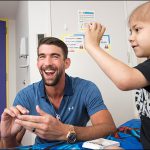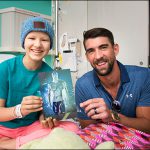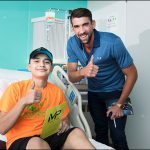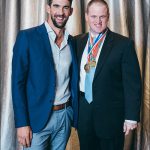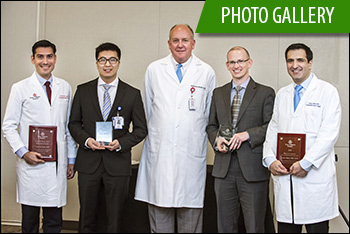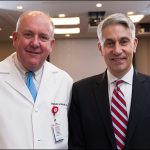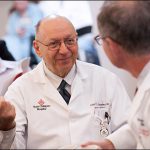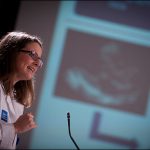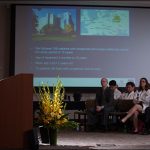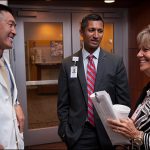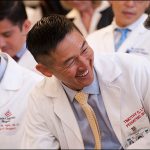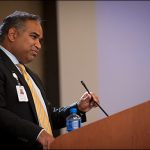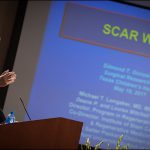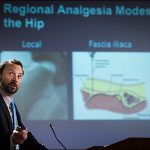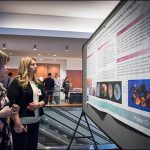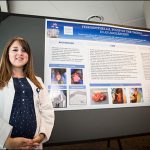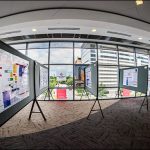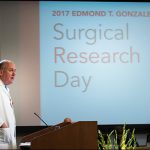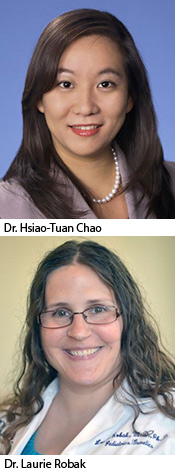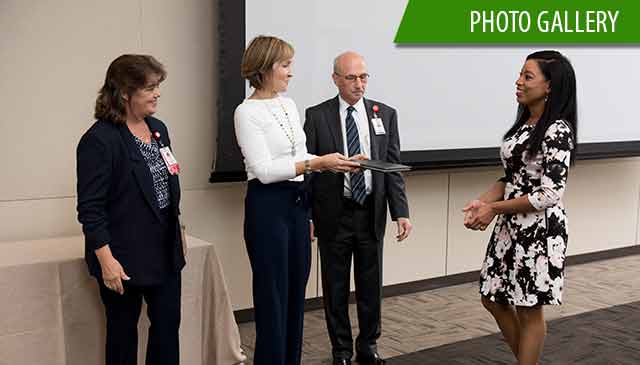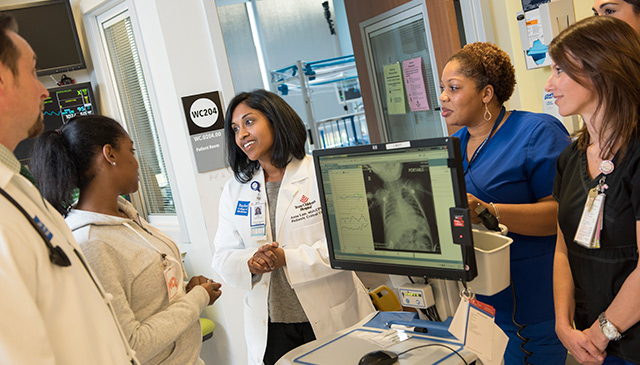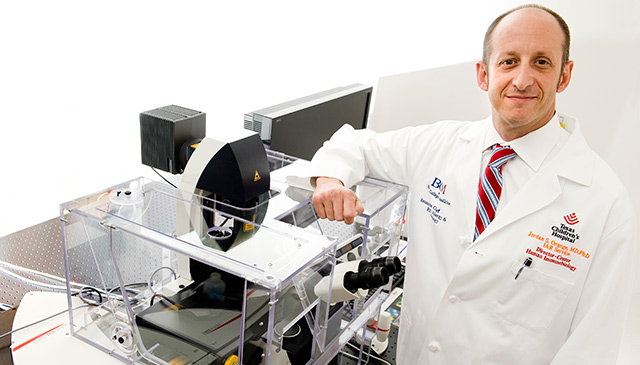 Three distinguished faculty members from Texas Children’s Hospital Department of Surgery have been given the Master Clinician Award for Excellence in Patient Care from Baylor College of Medicine. Dr. Ellen Friedman, Dr. Edmond Gonzales Jr., and Dr. David Wesson are among the recipients of this award in 2017.
Three distinguished faculty members from Texas Children’s Hospital Department of Surgery have been given the Master Clinician Award for Excellence in Patient Care from Baylor College of Medicine. Dr. Ellen Friedman, Dr. Edmond Gonzales Jr., and Dr. David Wesson are among the recipients of this award in 2017.
“Drs. Friedman, Gonzales and Wesson are accomplished academic surgeons who exemplify the ideals of the Master Clinician award,” said Dr. Charles D. Fraser, Jr., Texas Children’s surgeon-in-chief. “Each of these surgeons lead in their clinical specialties through excellent patient care. They are each model surgeon educators as well.”
The Master Clinician Award is Baylor’s highest institution-wide honor for faculty contributions to patient care. To be considered for the award, the faculty member must be an associate or full professor and have 15 or more years of clinical service as Baylor faculty. Consideration is given to the physician’s enduring contributions to clinical excellence, expertise in patient care as recognized locally, regionally or nationally, professionalism and communication, leadership, mentoring, clinical innovation, and continuous service to the Baylor community.
Friedman is a pediatric otolaryngologist at Texas Children’s and a professor of otolaryngology and the director of the Center for Professionalism in Medicine at Baylor. She previously served as chief of Otolaryngology at Texas Children’s and held the Bobby Alford Endowed Chair in Pediatric Otolaryngology at Baylor for 24 years from 1991 until 2014.
Friedman is a respected leader in the field of otolaryngology serving at a national level in many professional societies. She was the first woman to be president of the American Society of Pediatric Otolaryngology (ASPO), and the American Broncho-Esophagological Association (ABEA) renamed a national award for Friedman. The Ellen M. Friedman Award for Excellence in Foreign Body Management is given for excellence in innovation, skill and education in the management of aero-digestive foreign bodies.
Gonzales is a pediatric urologist at Texas Children’s and a professor of Urology at Baylor. He served as chief of Pediatric Urology at Texas Children’s from 1974 until 2012. He was named Chief of Surgery serving from 1988 to 2012 and was the hospital’s first Surgeon-in-Chief guiding surgical efforts from 2008 to 2010. He was then named Director of Surgery at West Campus from 2010 until 2014. In his nearly 40 years at Texas Children’s, Gonzales has established a legacy of excellence for which the hospital and Baylor College of Medicine honored him by creating The Edmond T. Gonzales, Jr., MD, Chair in Pediatric Urology which he held from 2004 until 2012.
Within the field of urology, Gonzales has been a leader in the establishment and expansion of pediatric urology fellowship programs across the country. As a result of his work, pediatric urology fellowship positions have more than quadrupled since the early 1980s. In 2012, he was the recipient of the Urology Medal, the highest accolade bestowed by the Urology Section of the American Academy of Pediatrics, because of his pioneering work in pediatric urology and education. In 2001, the Scott Department of Urology at Baylor College of Medicine honored Dr. Gonzales with the F. Brantley Scott, Jr., Award for Innovation and Creativity in Urology.
Wesson is associate surgeon-in-chief for academic affairs at Texas Children’s and professor of Surgery and Pediatrics at Baylor. He also serves as interim surgeon-in-chief at Children’s Hospital of San Antonio. Wesson served as chief of Pediatric Surgery at Texas Children’s from 1997 to 2012. He led the efforts to grow and obtain Level I accreditation for the Texas Children’s Trauma Center and served as its director from 2007-2014. Dr. Wesson was also instrumental in building other Texas Children’s programs such as the Fetal Center, bariatric surgery and surgical oncology. At Baylor, Dr. Wesson is director of Faculty Education and Development for the Department of Surgery. He was also interim chair of the DeBakey Department of Surgery from 2011 to 2012.
Wesson is well known internationally for participating in some of the earliest definitive studies on the non-operative treatment of solid organ injuries in children. His research brought about a new method of treating splenic trauma non-operatively, and resulted in this protocol becoming the standard of care not only for children but also for all age groups. Wesson received the American College of Surgeons Committee on Trauma Millennium Commitment Award in 2000 and the Safe Kids Canada Founder Award in 2006. As a member of the American College of Surgeons Committee on Trauma, Wesson is a survey team member for Trauma Center designation. He is a founding member of the International Society for Child and Adolescent Injury Prevention, and serves on the Editorial Board of the Journal of Trauma.
All three surgeons receiving the Master Clinician Award have also received the Distinguished Surgeon Award from Texas Children’s Hospital.


